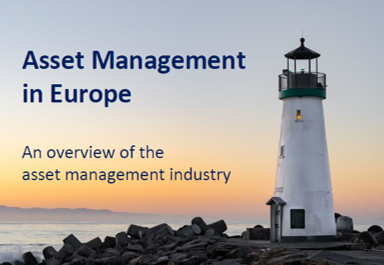Management Companies
EFAMA has been looking at legislative proposals with a direct impact on asset management companies and services, and closely follows any regulatory developments of critical importance to the sector. In addition to issues related to risk management and financial stability, high up on the agenda of EFAMA members is the framework for a prudential regime for Investment Firms (IFD/R), and related implementing measures directly descending from such framework.
EFAMA is focused on minimising the impact of the rules on asset management companies, in particular those holding a limited MiFID license. Key to the sector is the need for proportionality, especially firms that are not authorised to hold client money/securities, or to deal on their own account.
EFAMA response to the ESAs Draft Guidelines on "The Risk Factors Guidelines"
EFAMA's response to ESMA's CP on Implementing technical Standards under Regulation (EU) 2019/1156
EFAMA statement about Renewed Sustainable Finance Strategy Consultation
EFAMA reacts to IOSCO statement on liquidity risk management for investment funds
EFAMA welcomes the recent statement by Ashley Alder, IOSCO Board Chair, on liquidity risk management for investment funds.
Liquidity and counterparty risks in ETFs
EFAMA recently finalised a  Comment Paper in response to the ECBs November 2018 findings around liquidity and counterparty risks in ETFs, included in the ECBs semi-annual Financial Stability Review.
Comment Paper in response to the ECBs November 2018 findings around liquidity and counterparty risks in ETFs, included in the ECBs semi-annual Financial Stability Review.
EFAMA welcomes final agreement on legislation facilitating cross-border distribution of funds
We welcome yesterday's vote by the European Parliament plenary, formally adopting the trilogue agreement on the Commission's initiative to remove cross-border barriers to the distribution of investment funds.
This marks a decisive recognition of the need to postpone the application of the PRIIPs disclosure regime for UCITS by two years, in light of the regime's documented shortcomings. It also allows the European Commission more time to conduct a thorough review of the same within one year.
Asset Management Report 2019
The EFAMA Asset Management in Europe report aims at providing facts and figures to gain a better understanding of the role of the European asset management industry. It takes a different approach from that of the other EFAMA research reports, on two grounds. Firstly, this report does not focus exclusively on investment funds, but it also analyses the assets that are managed by asset managers under the form of discretionary mandates. Secondly, the report focuses on the countries where the investment fund assets are managed rather than on the countries in which the funds are domiciled.

































